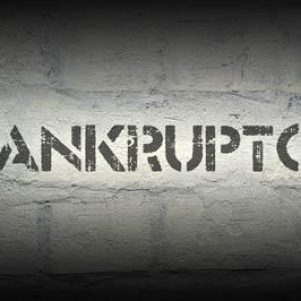The basic aspects and the deadlines to apply for bankruptcy in Spain are included in Article 5 of the bankruptcy regulations: The debtor must request the declaration of bankruptcy within the two months following the date on which he had known or should have known his state of insolvency.
Basic aspects of bankruptcy: classification
If the debtor complies with the request for bankruptcy declaration within the specified two-month deadline, the classification of the bankruptcy would be deemed voluntary, i.e. when the debtor himself requires it. This type of bankruptcy gives the debtor a series of advantages over the opposite situation: bankruptcy classified as necessary, requested by a creditor or a person with a legitimate interest, instead of by the debtor.
About the presentation of voluntary bankruptcy
The voluntary bankruptcy is done before the Commercial Court of debtor’s domicile and, necessarily, through the representation of a court agent and with the legal assistance of a lawyer. The following documents must accompany the application:
- Explanatory memory of the debtor’s legal and economic history
- Inventory of assets and rights
- Record of creditors and list of employees
- Annual accounts for the last 3 years.
Consequences of a delayed request for bankruptcy
The debtor’s failure to fulfil his duty to request for bankruptcy within the specified deadline of 2 months prescribed by the law could result in:
- That the debtor’s bankruptcy is finally requested by a creditor, under the classification necessary
- Personal and patrimonial responsibilities, not only for the debtor himself but also for his legal representatives.
Necessary bankruptcy and negligent bankruptcy
Thus, when the bankruptcy is declared necessary, the debtor’s management and administrative powers regarding his assets are suspended; thus, these powers are entrusted to the bankruptcy receiver.
On the other hand, the Bankruptcy Law establishes a series of facts based on which it assumes the bankruptcy must be identified as negligent once the qualification phase has been reached. Among the various circumstances that could lead to this type of qualification, the following stand out:
- A substantial breach of accounting
- Falseness in the documents presented together with the application for bankruptcy
- Lifting of assets to the detriment of the creditors
- Failure to comply with the duty to request for bankruptcy within the legal deadline.
In this sense, the consequences for the legal representatives of the debtor arising from the classification of negligent bankruptcy may include:
- The disqualification to administer other people’s assets for a period of 2 to 15 years
- The loss of any rights they might have as creditors
- As a more serious consequence, to pay the credit not fully attended with the liquidation of the bankrupt company (either totally or partially) with all their personal assets, i.e. to assume bankruptcy deficit.
Considering the liability regime to which the directors/legal representatives of capital companies are subject to in insolvency situations, it is essential that their actions are governed at all times by the utmost diligence and always seeking to satisfy the social interest.
If you require legal advice on how to apply for bankruptcy in Spain,





